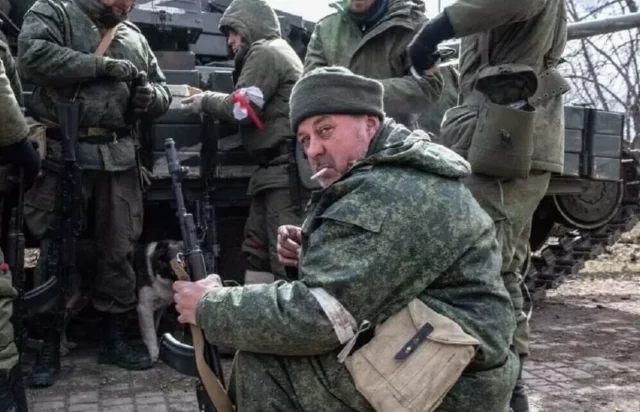Russia’s Military Strategy: Navigating Tough Choices Amidst Limitations
In recent times, it has become increasingly clear that the Russian military is grappling with significant operational challenges. Recent evaluations suggest that Russia’s military capabilities are constrained, forcing a rethinking of their approach to warfare. The Institute for the Study of War (ISW) has pointed out that Russia lacks the necessary resources to effectively attack multiple fronts simultaneously. This has led military leaders to shift their focus onto a singular front, a strategy that carries both risks and implications for the broader conflict.
### The Reality of Reserve Forces
Ukrainian military analyst Kostiantyn Mashovets recently shed light on the current state of Russian reserve forces. Over the past several months, Russia has enlisted approximately 60,000 reservists. However, these individuals face barriers that could impede their effectiveness on the battlefield. Think about how a sports team operates: if new players are brought in without adequate training or essential equipment, they won’t perform at their best, no matter how talented they are.
— **Inadequate Training**: Many of these reservists are not adequately trained to execute complex military strategies.
— **Lack of Equipment**: Basic military gear and resources are often missing, hampering their ability to operate effectively.
This situation has led the ISW to conclude that these reservists are being utilized more to bolster existing units rather than creating new, capable fighting forces. This lack of readiness and cohesion may severely limit Russia’s capacity to launch effective large-scale offensive operations.
#### The Bigger Picture: What Does This Mean?
The implications of Russia’s military shortcomings are significant. Analysts have noted that with a finite number of trained forces available, Russia’s ability to execute multiple large-scale offensives across different conflict zones is constrained. For instance, consider a company trying to expand its operations without enough staff or resources—this can lead to underperformance and missed opportunities.
According to various military studies, effective military operations typically require a force that is not only well-trained but also well-coordinated. In this case, the limited availability of trained personnel could severely impact Russia’s strategic initiatives and overall effectiveness.
### A Focused Approach Moving Forward
As Russia gears up for an anticipated offensive, experts predict a pivotal summer ahead. The military leadership finds itself at a crossroads, where the need to wisely allocate resources is more pressing than ever. Decisions about military strategy in the upcoming weeks will be crucial. A focused approach, likely concentrating objectives on a single primary front, is expected to characterize their strategy moving forward.
This current predicament highlights the complexities of modern warfare, where logistical considerations and the training of personnel play critical roles in a nation’s military success. Understanding this dynamic is essential not only for military planners but also for anyone interested in global affairs.
In summary, as Russia navigates these strategic dilemmas, the military’s limitations could reshape the nature of the conflict. By concentrating their efforts and enhancing the readiness and quality of their forces, they may try to regain some semblance of operational effectiveness. However, the ongoing challenges present a significant hurdle that will be crucial to observe in the forthcoming phases of the conflict.





